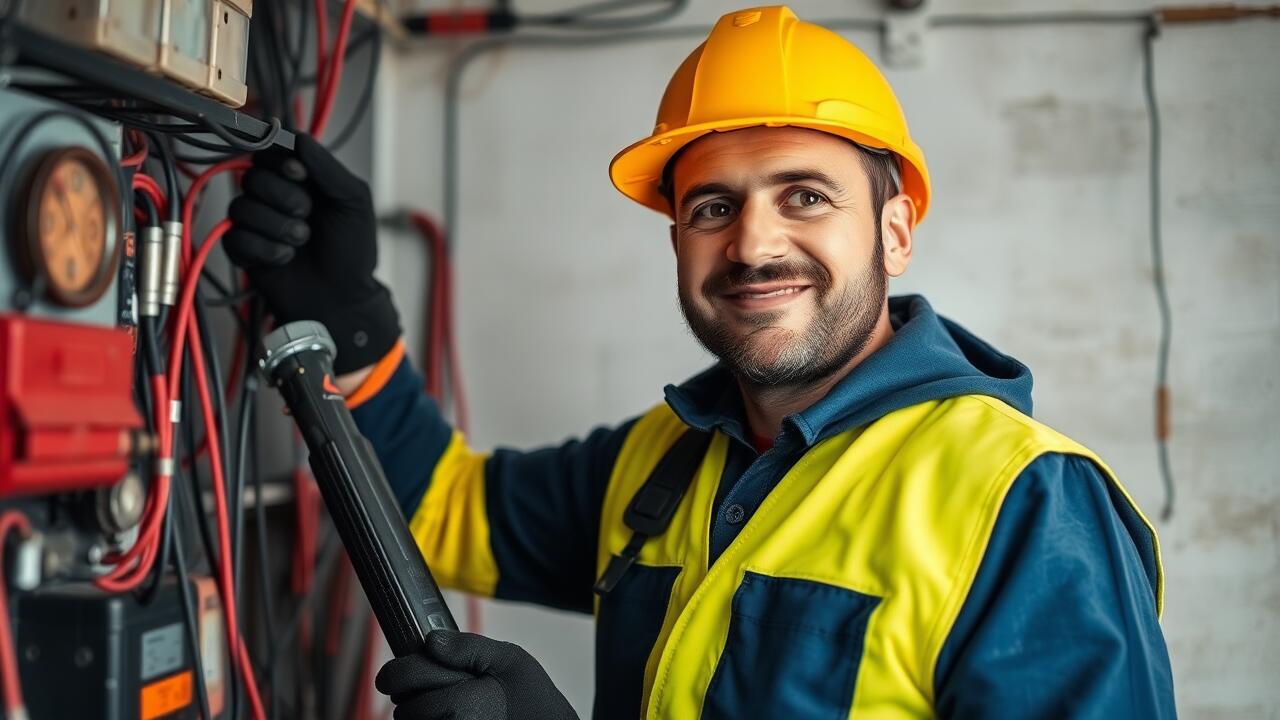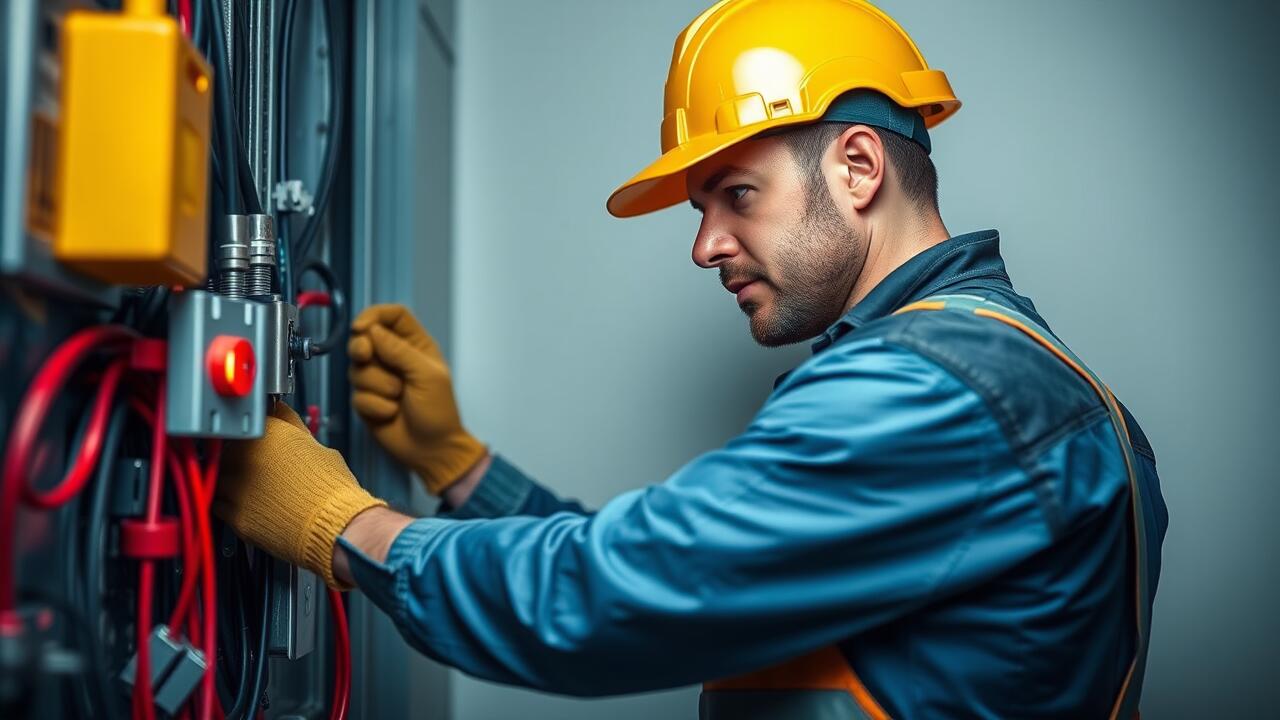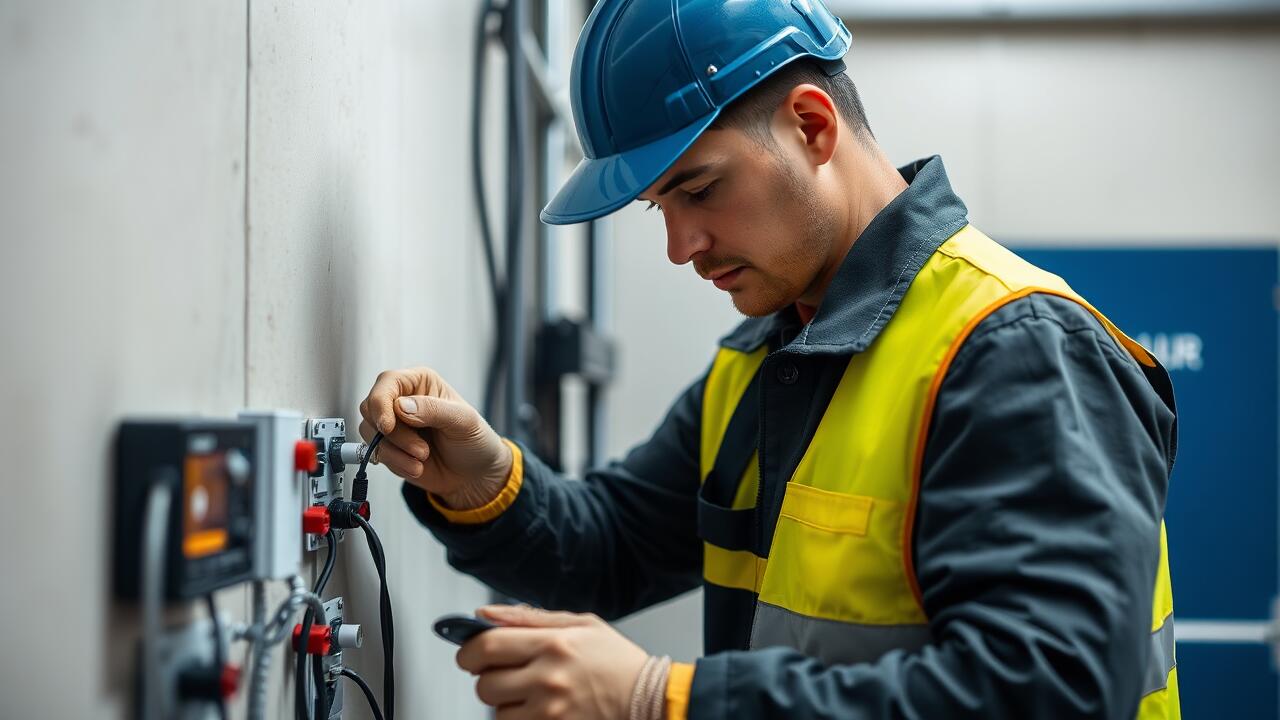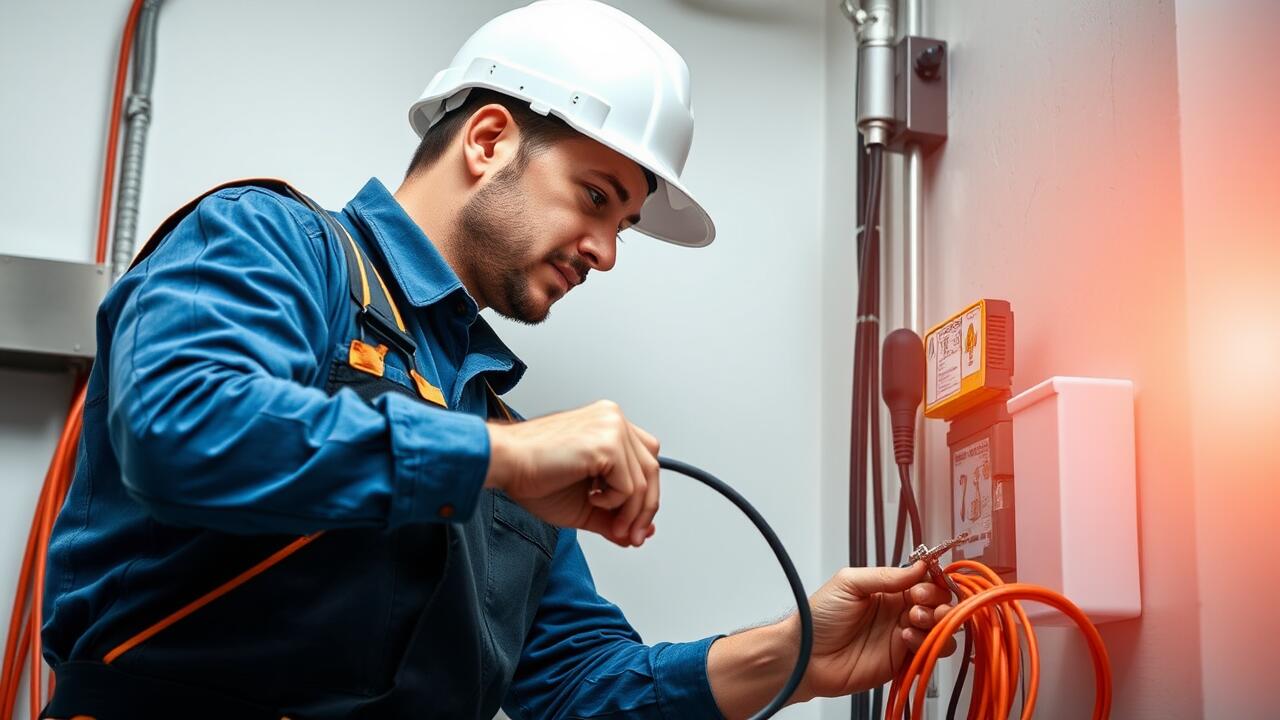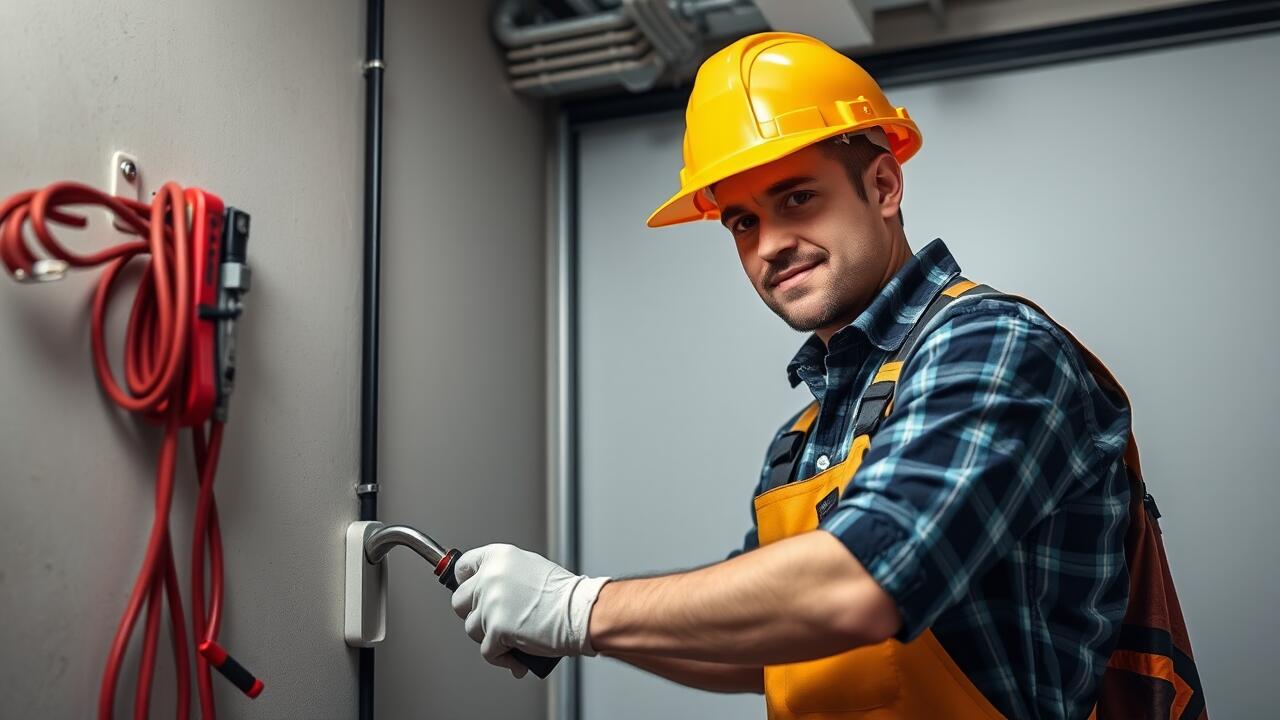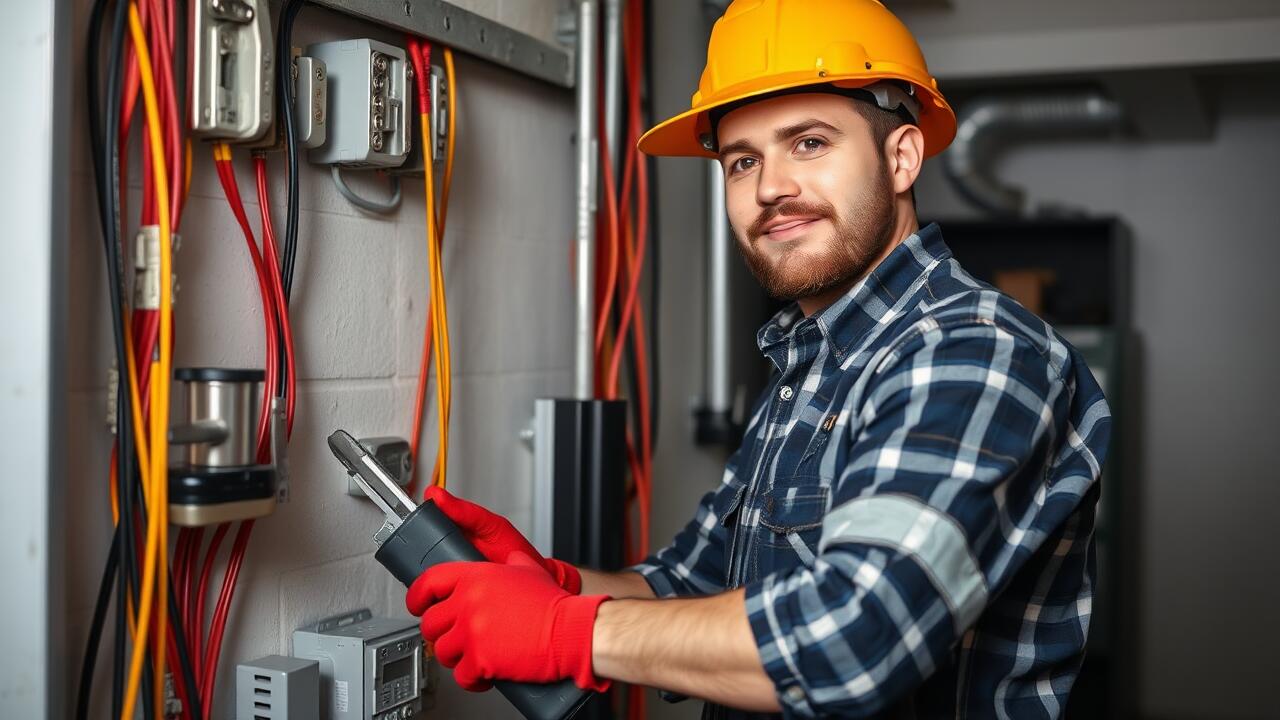
Home Wiring Layouts
Home wiring layouts play a crucial role in ensuring the safety and functionality of a residence. Different configurations serve specific needs and are influenced by factors such as the size of the home, electrical demand, and local codes. Common layouts include the branch circuit system, which distributes electricity to different areas effectively, and the ring circuit, which creates a continuous loop to minimize voltage drop. Understanding these layouts helps homeowners make informed decisions about their electrical systems.
For those considering upgrades or new installations, consulting an Electrician near me is advisable. They provide expertise in adhering to safety standards and optimizing power distribution in your home. Professional electricians can assess existing wiring layouts, recommend effective configurations, and ensure that all installations meet local building regulations for optimal performance and safety.
Common Configurations for Residential Wiring
When considering the common configurations for residential wiring, knowing the layout of your home is essential. Most homes utilize a combination of branch circuits, which distribute power to outlets and fixtures. The two-pole circuits typically manage heavy appliances like ovens and dryers, while single-pole circuits handle basic lighting and general-purpose outlets. Understanding these configurations allows homeowners to identify the capacity of their electrical systems and how they can safely add or modify circuits.
Homeowners may sometimes find themselves in need of professional help when issues arise. Seeking an "Electrician near me" can ensure that any changes to wiring configurations are compliant with local codes and safety standards. A qualified electrician will assess the current wiring system, identify any potential hazards, and suggest appropriate upgrades or repairs to meet the household's electrical demands. This professional insight is invaluable in maintaining a safe and efficient electrical system at home.
Electrical Code Requirements
Electrical codes are established to ensure the safety and functionality of wiring systems in homes. These regulations dictate the standards for installation, maintenance, and performance of electrical components. It is crucial for homeowners to comply with these codes to prevent hazards such as electrical fires, shocks, and equipment damage. Regular updates to these codes reflect advancements in electrical technology and safety protocols.
Understanding local building regulations is essential for any electrical work. Homeowners often find it beneficial to consult with a qualified electrician near me to ensure all installations meet the necessary requirements. This professional guidance helps navigate complex regulations while also ensuring that projects are completed safely and efficiently. Ultimately, adherence to electrical code requirements protects both the property and its occupants.
Understanding Local Building Regulations
Local building regulations govern the installation and maintenance of electrical systems within homes. These regulations ensure safety, efficiency, and adherence to industry standards. Homeowners should familiarize themselves with their area's requirements, as variations exist depending on state and local jurisdictions. Having a clear understanding of these guidelines can aid in proper project planning and execution.
When undertaking electrical work or renovations, it is often wise to consult a professional. An electrician near me can provide valuable insight into local codes and help navigate the complexities of compliance. Their expertise ensures that all installations not only meet regulatory standards but also enhance the overall safety and functionality of the home.
Troubleshooting Common Wiring Issues
When troubleshooting common wiring issues in your home, it’s crucial to recognize the signs that indicate a problem. Flickering lights, frequently tripped circuit breakers, and outlets that feel warm to the touch can all suggest underlying electrical issues. DIY fixes may be tempting, but safety should always come first. Understanding basic troubleshooting steps can help you identify the source of the problem, but calling a professional may be necessary for more serious concerns.
If simple troubleshooting does not resolve the issue, searching for an "Electrician near me" is a smart move. Professionals can conduct a thorough inspection of your electrical system to pinpoint any faults or hazards. Their expertise ensures the work is done safely and in compliance with local codes. Investing in professional help can prevent potential hazards and costly repairs down the line.
Identifying Signs of Electrical Problems
Recognizing signs of electrical problems in your home is crucial for ensuring safety and maintaining a functional living environment. Flickering lights, frequent circuit breaker trips, and warm or discolored outlets are common indicators that something may be wrong with your wiring. These symptoms can signify overloaded circuits or faulty connections that need prompt attention to prevent further damage or potential fire hazards.
If you observe these issues, it's advisable to consult a professional. Searching for an “electrician near me” can help locate qualified individuals who can accurately assess and resolve wiring problems. Taking these signs seriously and acting quickly not only helps protect your home but also promotes peace of mind in your everyday life.
FAQS
What are the common types of wiring layouts used in homes?
The common types of wiring layouts used in homes include the branch circuit system, the multi-wire branch circuit, and the home run wiring. Each has its own advantages and is chosen based on the electrical needs of the home.
How can I ensure my wiring complies with electrical code requirements?
To ensure compliance with electrical code requirements, it's essential to familiarize yourself with the National Electrical Code (NEC) and your local building regulations. Consulting a licensed electrician can also help ensure all work meets the necessary standards.
What should I do if I notice signs of electrical problems in my home?
If you notice signs of electrical problems, such as flickering lights, tripped circuit breakers, or unusual odors, turn off the power to the affected area and contact a licensed electrician immediately for inspection and repair.
Are there specific building regulations I need to follow when wiring my home?
Yes, there are specific building regulations that vary by location. You should check with your local building department to understand the requirements for electrical installations in your area.
How can I troubleshoot common wiring issues in my home?
To troubleshoot common wiring issues, start by checking the circuit breaker panel for tripped breakers, inspect outlets for damage, and test light fixtures for proper operation. If problems persist, it's best to consult a professional electrician.
